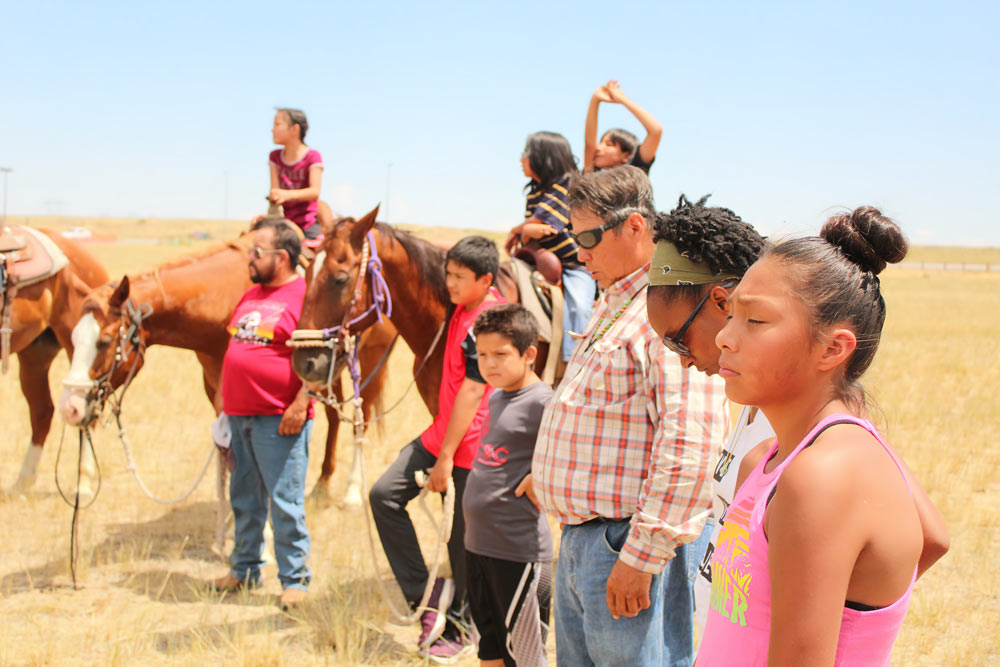Riding for the Past, Riding for the Future
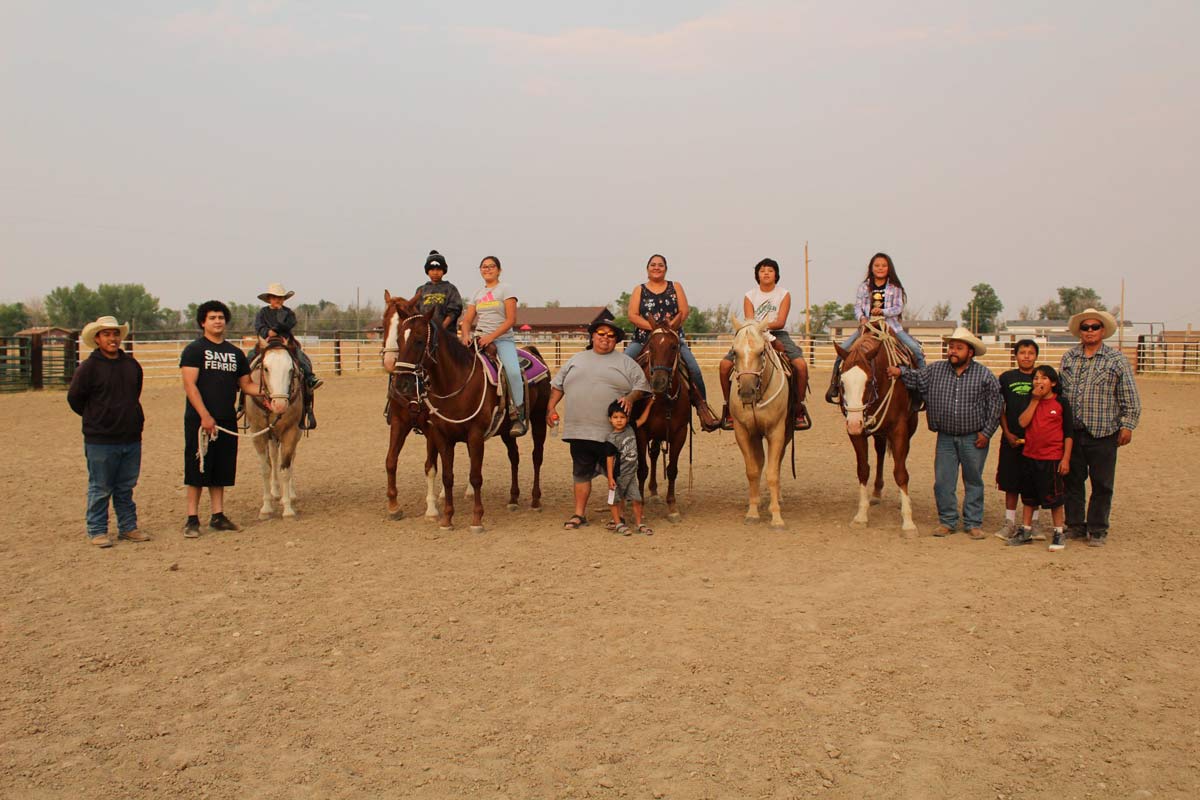
If you’re driving across the Wind River Reservation in the heart of Wyoming, along the road that traverses the sagebrush and steep arroyos between Riverton and Ethete, you may catch a glimpse of something very special. A line of people on horseback — a variety of ages, some clad in traditional Arapaho regalia, others in contemporary teenage apparel — bearing a flag, riding for miles and miles.
These healing rides, led by Arapaho father and son, Allison and Elk Sage, represent a unique program that seeks to offer connection and support to younger tribal members through horses. Since the onset of Covid, Allison and his son have been welcoming young adults to healing rides in hopes of not only helping them discover their own rich heritage, but also to forge a safety net for them, preventing serious problems like substance abuse and suicide.
Before Covid upended the world as we all know it, Allison and Elk were hosting a suicide prevention group with young adults on the Wind River Reservation. This first iteration of their outreach demonstrated the emotional and psychological impact that spending time around horses can have on vulnerable individuals.
We would get everybody there and get into a circle. We would pray and we cedar them, and introduce ourselves,” explains Allison. “We used the Arapaho language to introduce ourselves, and we told them to use whatever name they want — their English name, their Indian name, their movie star name, their game boy name — whatever name they want to use. And then we had them tell us how they’re feeling.”
“When you’re suicidal or you’re hurting or anything, we’re not used to telling people that we’re hurting or that we need help,” Allison explains. This connection-building actively eroded kids’ sense of isolation and hopelessness. It also inspired the Sages to work against the challenges that they faced in order to continue providing these kinds of experiences for local kids.
“It’s so amazing that just that short time of being with us and the horses, they really love it.” Now, each month, Allison and Elk lead a group on healing rides across the Wyoming landscape — some traversing up to thirty miles.
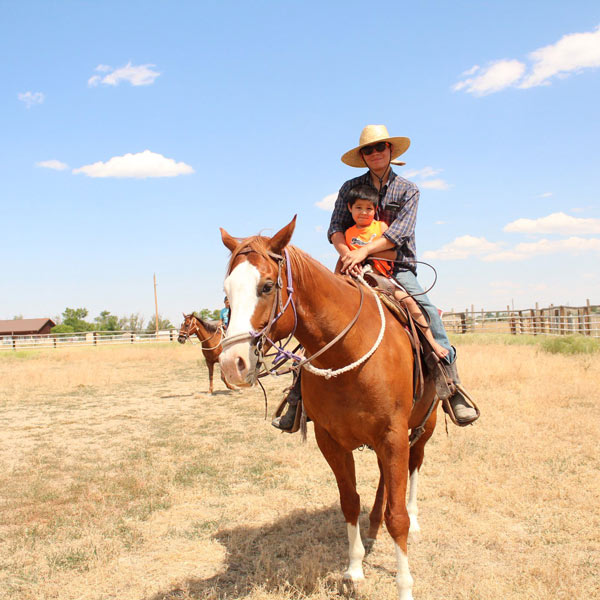
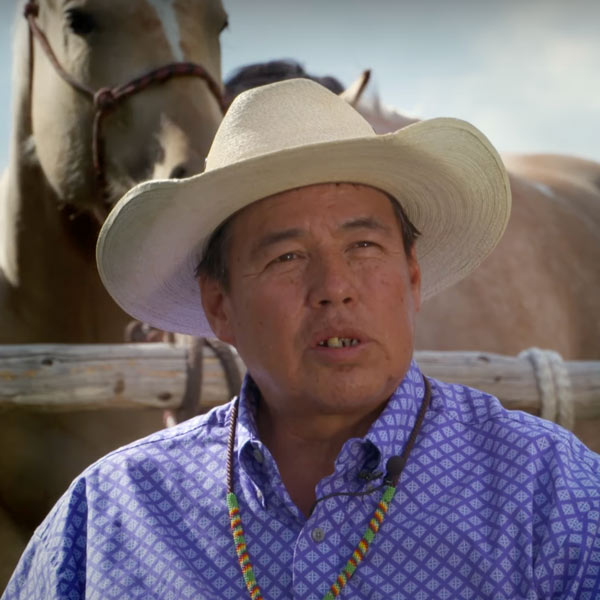
Elder and Horse Handler, Allison Sage
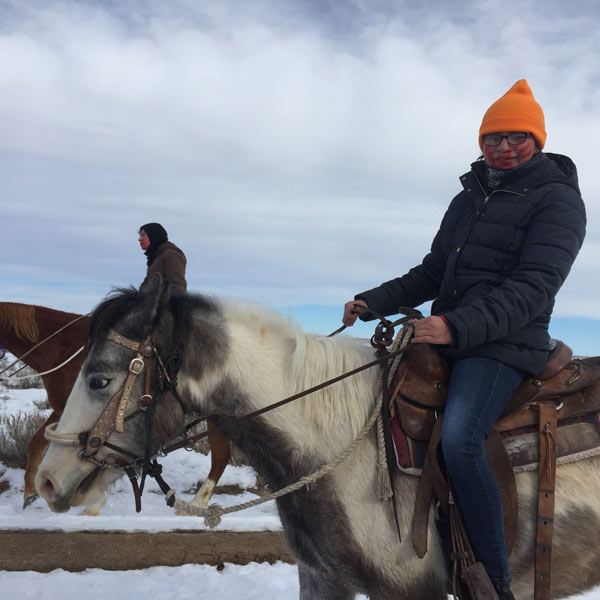
Horses, Allison says, are more than a way of transportation in the Arapaho culture. “Our people and the horse, they’re part of one family. As we came along through time, when our people got the horse, it gave them mobility to hunt buffalo, to move camp, to go to different places, to transition different places.” The arrival of the horse to the plains tribe allowed the ancestral community to travel with ease, following the migrating herds of buffalo and following the warmth to more southern locales during winter months. Giving the youth an opportunity to explore this integral element of tribal history and culture empowers them to embrace their identity and community.
For the past three years, the Sages have taken a group of horses and riders to Montana for a ceremonial victory ride commemorating the Battle of Greasy Grass — a monumental win for Chief Sitting Bull and the Lakota, Cheyenne, and Arapaho people over the U.S. forces led by General Custer.
“Our Lakota brothers showed us a ceremony that when we start our ride, everybody gets in a circle and then a young lady takes tobacco to all those riders and gives it to them. They hold it in the air, and an elder prays. And then as soon as he’s done praying, the riders pray in their minds also. And when they’re done praying, they rub the tobacco all on their horse — on the neck and on the legs and the back. That horse carries our prayers for us and puts them along the earth and spreads them out into the air.”
“It’s a pretty amazing ceremony,” Allison reflects. “A good way to start. We incorporate that into our ride. We sing a flag song to honor our country and our flag, and then we sing another Eagle Song, and they ride around the drum four times. And then the ride starts.:”
When we tell the kids to rub that horse — to connect with that horse — it changes them. And they feel that energy from the horse, and they feel that connection in their blood, their DNA. It’s already in there, and it just triggers something in there. It feels good.”
And it’s that feeling, he says, that is at the core of their efforts. When young people can feel authentic connections to one another, to safe adults, and to their unique, rich heritage, they’re more likely to reach out for help during a difficult time. In that way, Allison and Elk aren’t only offering hope and healing to the kids they help — they’re investing in the future of their community.
“We are deeply supportive of the important work that Allison and Elk are doing with their healing rides and youth outreach,” says Molly Hughes, Executive Director of the Hughes Charitable Foundation. “These experiences are impactful on so many levels, and we are absolutely delighted to help the program endure.”
Breaking down barriers and cultivating meaningful relationships through shared meals, trusting conversations, and miles passed on horseback create something truly special that keeps the kids coming back again and again. Their loyalty lets Allison know that they’ve built something important, and he’s determined to keep it going. “Otherwise they’d just be at home sitting on the couch looking at their phone, not talking to other people,” he says.
